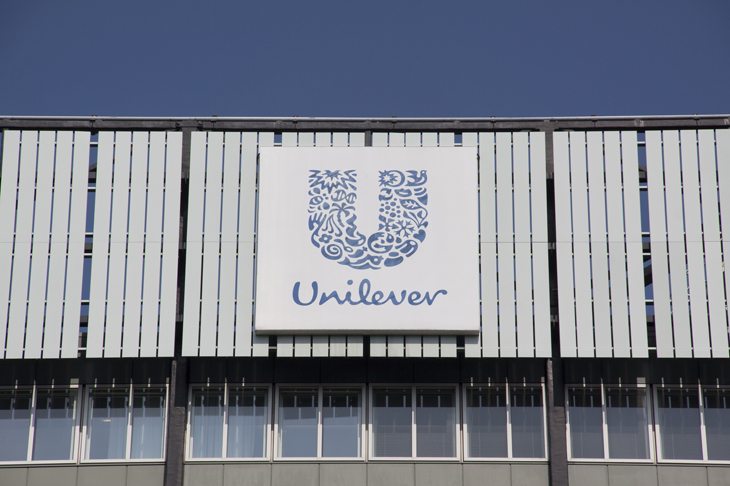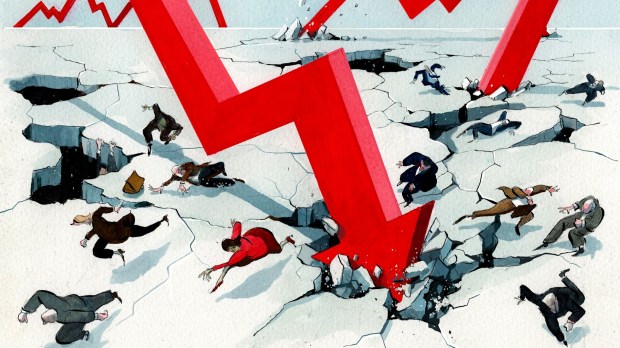I was sorry Kraft Heinz’s £115 billion bid for Unilever collapsed so fast — unveiled on Friday, it was dead by Sunday. Not that I saw the aggressor as a worthy potential victor; but a longer battle would have provided great material for column-sermons on good and bad capitalism. Aha, I hear you ask, but which side is which?
Unilever is the Anglo-Dutch maker of Dove soap and Magnum ice creams. With its dual headquarters in London and Rotterdam, its multi-layered bureaucracy and its bosses who bang on about social responsibility, it might be seen as a big fat corporate proxy for the European Union — in urgent need of a shake-up. Processed-cheese-to-ketchup giant Kraft Heinz, by contrast, is a cost-slashing value-generator bolted together by two of the world’s wiliest investors, Warren Buffett and the Swiss-Brazilian billionaire Jorge Paulo Lemann. If the two conglomerates became one, supermarkets would still offer their brands at the same prices; Unilever shareholders could cash out if they didn’t like it; factories might close, but that’s the way of the world: there’s no other way to maximise profits.
Well, maybe. Except that culture-destroying mega-mergers rarely reward investors. And the business world flourishes through biodiversity in which there’s still room for Unilevers that set global benchmarks and train top managers, just as there’s room for disrupters and innovators. But Kraft Heinz is none of those: it is a predatory financial robot designed to chew up acquisitions and spit out the bits that underperform. The outcome of Kraft’s 2010 hostile takeover of Cadbury — now just a sad name within another corporate monster, Mondelez — is all the cautionary tale we need. A good thing, then, that the Kraft Heinz crew read the weekend reactions and realised they had launched a battle they would not win.
Secondhand Vauxhall
Unilever filled the headlines, but the week’s most significant takeover story was the potential sale of General Motors’ European interests, including Vauxhall factories employing 4,500 workers in Luton and Ellesmere Port, to PSA, the French parent of Peugeot and Citroën. Vauxhall, like its Astra model, is an unglamorous stalwart of our thriving auto industry; its UK market share, currently 8 per cent, has been on a slow downtrend; and together with its German sister company Opel, it has lost money for GM for 16 consecutive years.
Business Secretary Greg Clark, having met PSA chiefs and his French ministerial counterpart, says Vauxhall workers have nothing to fear — which implies he must have offered PSA the same post-Brexit sweeteners the prime minister waved at Nissan. But if despite that unspecified promise it turns out UK car factories can no longer participate freely in the pan-European supply chain that makes the industry so competitive, would you bet on PSA (14 per cent owned by the French taxpayer) favouring Vauxhall for new investment when it could favour Opel or its own domestic factories? No, neither would I.
RBS: the farce continues
Ahead of its ninth-annual-loss-in-a-row announcement, RBS achieved a blip in its share price by revealing that it is no longer even trying to sell off the 307 branches that it has repackaged as Williams & Glyn. Insisted upon by EU competition authorities as a condition of RBS’s 2008 bailout, with a deadline of December 2017, this project has been a business-school case-study in how not to execute change. Having spent £1.6 billion trying to unplug the new entity from the mothership, RBS abandoned hope of floating it as a ‘challenger’ and failed to sell it to Santander or Clydesdale Yorkshire — the only parties to show serious interest, but neither willing to pay enough to satisfy RBS’s Treasury masters. Meanwhile, a comparable shrinkage was achieved by the cruder method of closing lots of NatWest and RBS branches (of which more below).
Now we learn that instead of severing Williams & Glyn, RBS will appease Brussels by offering a bundle of measures to encourage challenger banks to compete against itself in the small and medium-sized business market. Some £750 million will be spent to create an altruistic admin burden that actually takes business away from RBS, while analysts say reabsorbing the 307 ring-fenced branches could cost hundreds of millions more. What a farcical outcome.
The positive spin says this wheeze removes a barrier to the sell-off of the taxpayers’ 73 per cent stake in RBS. But since the other barrier is the US probe into securities mis-selling that’s expected to result in a $12 billion fine — and since the bank’s shares still stand at half the price at which the taxpayer bought in — don’t put your champagne on ice. RBS chief executive Ross McEwan is no fool, but he has an impossible job. Promising a return to profit by 2018, he will tell us again this week that inside RBS is a good business, perhaps several good businesses, waiting to see the light of day. I still think the only way to let that happen is to tow the hulk to the breakers’ yard.
Our readers’ report
Your emails on the subject of bank branch closures were so varied and extensive that I cannot do justice to them here, or answer them all personally. Instead I am pasting them together — omitting your names — to send to the admirable Dame Colette Bowe, who chairs the Banking Standards Board. At full length (10,000 words so far), our report has a clear theme: customers must try to adapt to the changing technologies and market conditions that are making branch networks shrink; but banks should and could be a lot smarter, more sensitive and more collaborative in the way they make that happen. Perhaps Dame Colette might include us in her speech to the forthcoming FT Banking Standards Conference, straplined ‘Changing business behaviour for the better.’
Got something to add? Join the discussion and comment below.
Get 10 issues for just $10
Subscribe to The Spectator Australia today for the next 10 magazine issues, plus full online access, for just $10.
You might disagree with half of it, but you’ll enjoy reading all of it. Try your first month for free, then just $2 a week for the remainder of your first year.















Comments
Don't miss out
Join the conversation with other Spectator Australia readers. Subscribe to leave a comment.
SUBSCRIBEAlready a subscriber? Log in